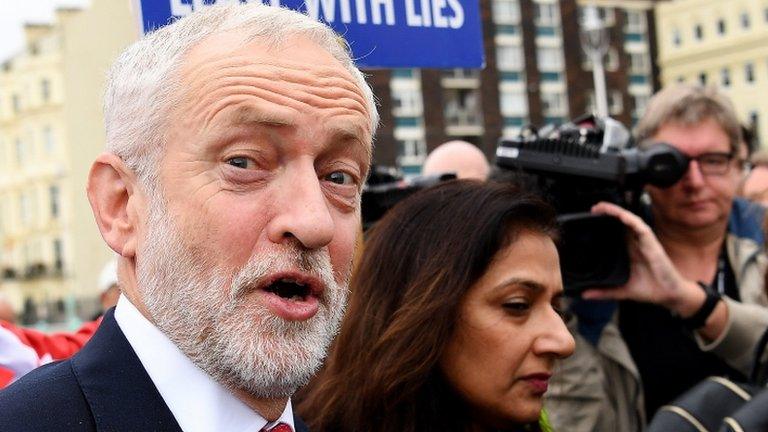Brexit: Can a no-deal still happen?
- Published
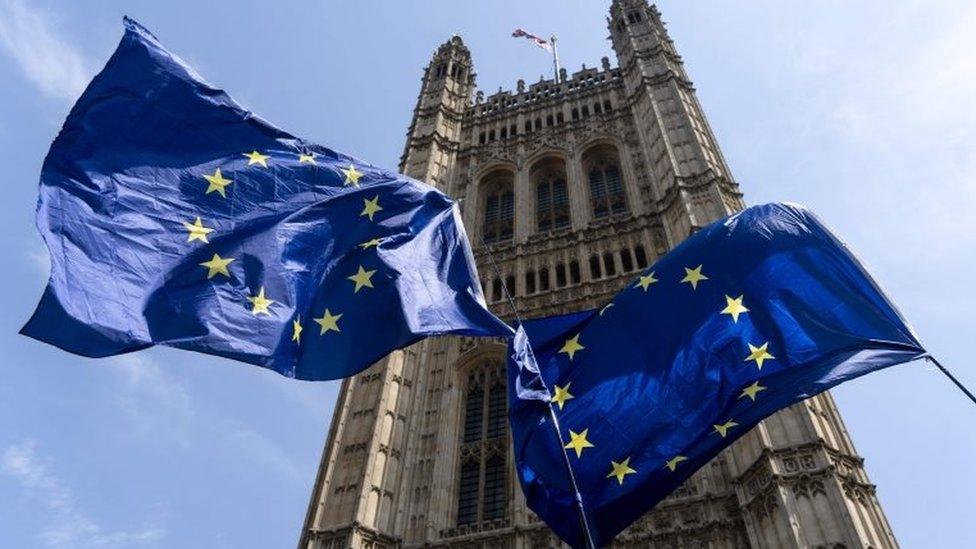
Boris Johnson is at odds with Parliament on the issue of leaving the EU without a deal
Prime Minister Boris Johnson has repeatedly said the UK will leave the European Union (EU) on 31 October "deal or no deal". But Chancellor Sajid Javid has now conceded that the deadline "can't be met".
While opposition parties decide in which circumstances they could support Mr Johnson's request for a December general election, the fate of the Brexit deadline currently lies with European leaders.
As things stand, it is still just about possible for the UK to leave the EU without a deal at the end of the month.
Can EU leaders reject an extension?
Now that EU ambassadors have agreed that there should be an extension, this route to a no-deal is extremely unlikely.
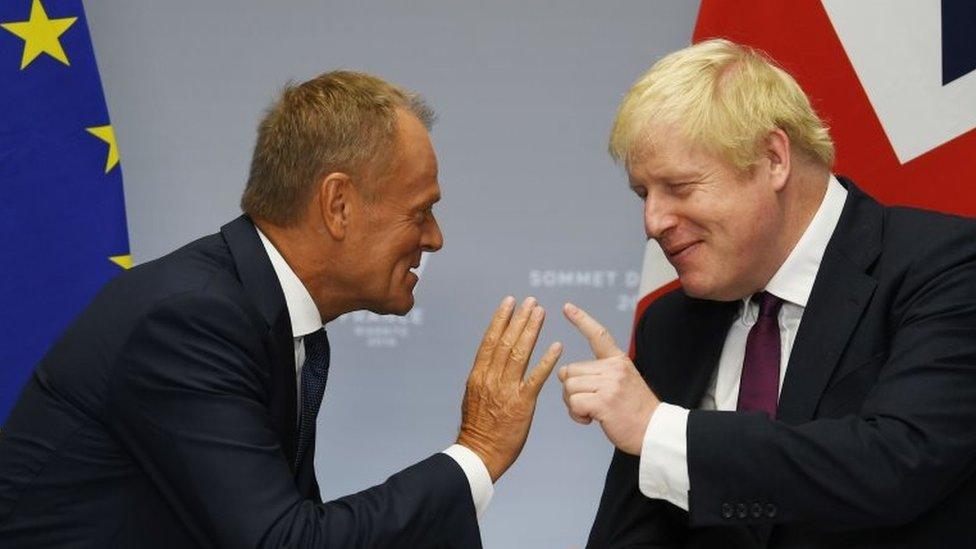
Mr Johnson sent a letter to European Council president Donald Tusk on 19 October, requesting a three-month Brexit delay
But for an extension to the Halloween deadline to go ahead, leaders of the other 27 EU countries have to agree unanimously. Until the change is formalised, the legal "exit date" remains at 31 October.
MPs reject an EU proposal
Now that the EU has agreed to an extension, it could still offer the UK a leaving date other than 31 January. In that instance, MPs would have up to two days in which they could vote to reject the proposal. If they don't vote, the proposal is automatically agreed to.
The EU may not announce the length of the extension until Tuesday, meaning any vote by MPs could theoretically happen on 31 October itself.
If the proposal was rejected, the extension would be off and a no-deal Brexit would happen next Thursday.
MPs would be unlikely to reject a proposal, however, for two reasons:
It would probably lead to a no-deal and most MPs want to avoid this
The government could simply choose not to hold a vote on the extension
Extension agreed but UK fails to pass a deal
Even with an extension agreed and put in place before the end of the month, a no-deal Brexit is not "off the table". Instead, it just pushes the possibility further into the future.
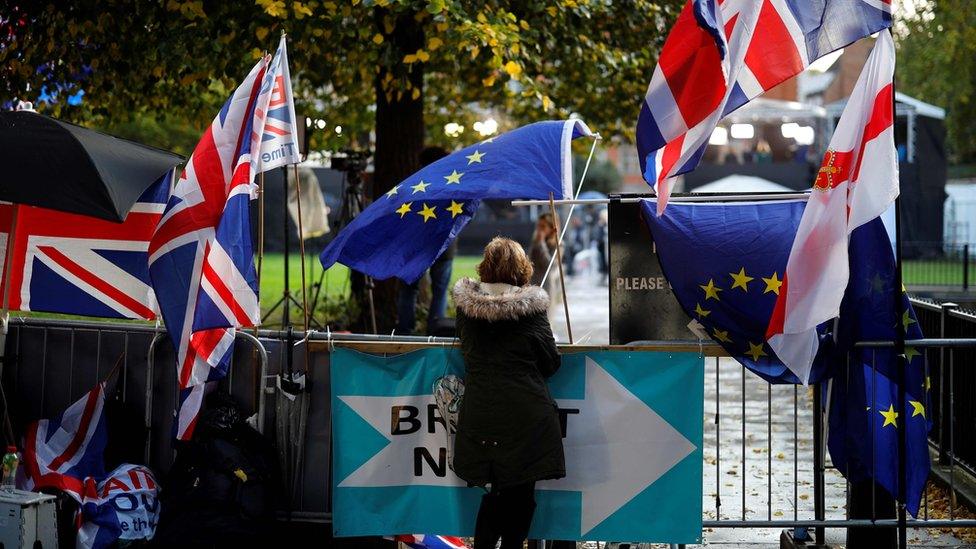
The UK will need to wait for an answer from the EU
Regardless of the length of the extension, the prime minister would probably still try to push his deal through Parliament.
However, if the government is unable to implement his deal (or another) before the new deadline, the UK would leave without a deal.
Ministers refuse to change the deadline
This is the most controversial and unlikely scenario.
If an extension were agreed, a minister would be required to change the deadline in law using something called a statutory instrument (the power to change the law without a vote of MPs).
And, theoretically, they could simply refuse to do this.
But not only would this be unlawful, it could be argued the "exit date" would be automatically changed anyway, because international law trumps domestic law.

Brexit explained
Brexit - British exit - refers to the UK leaving the EU. A public vote was held in June 2016 to decide whether the UK should leave or remain.

- Published6 September 2019
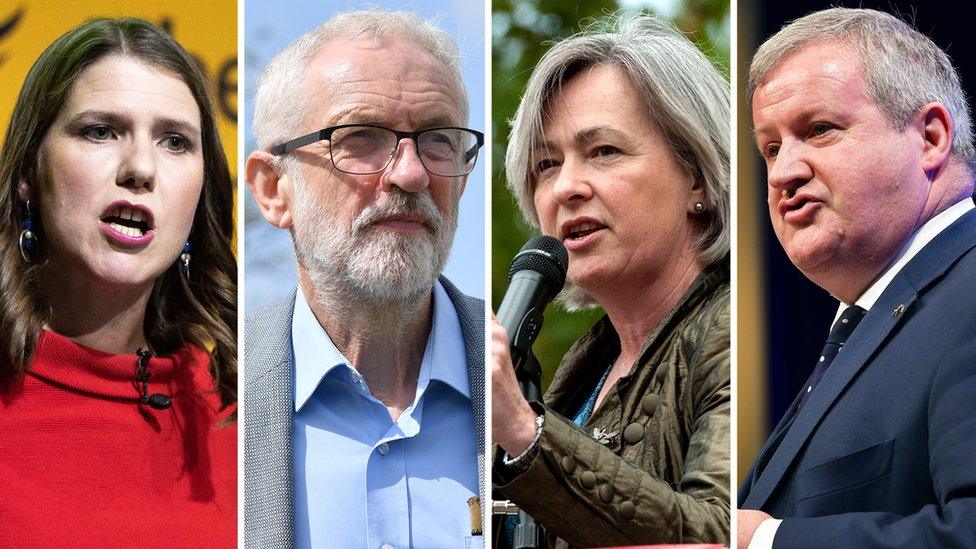
- Published5 September 2019
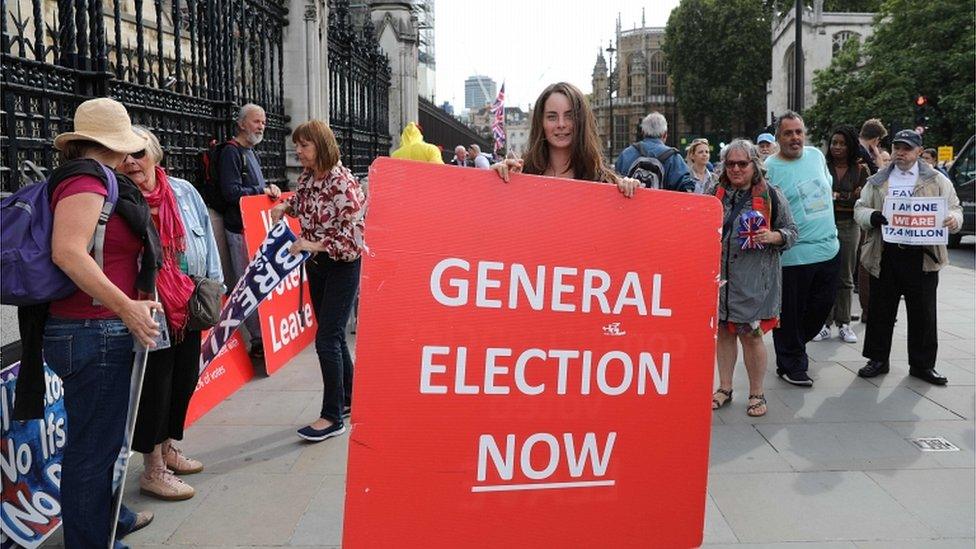
- Published5 November 2019
